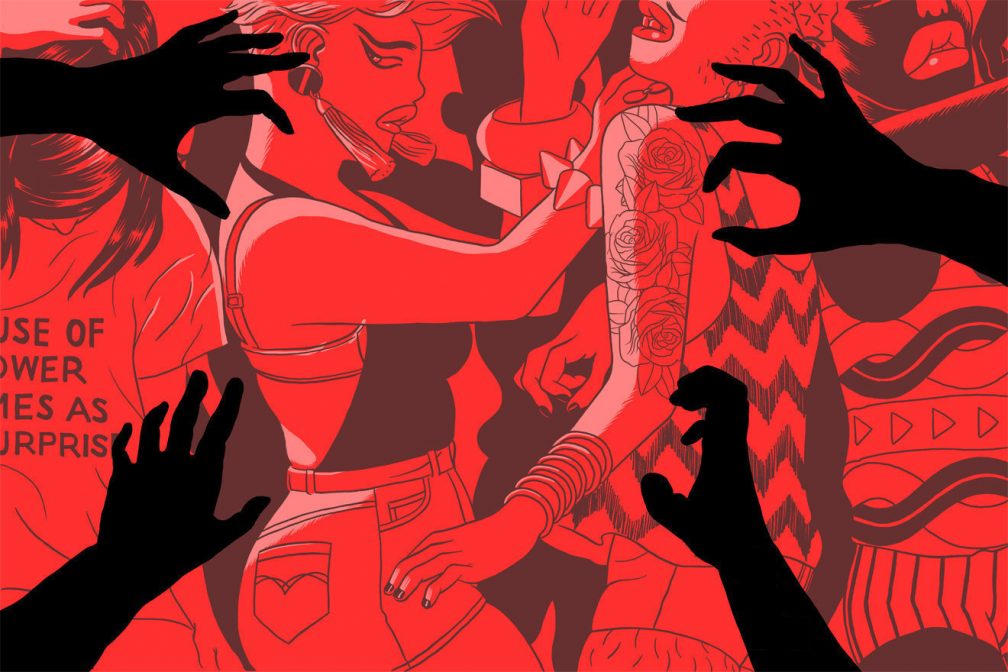
What to do if you get sexually harassed in a nightclub
The scene has acknowledged that sexual harassment is a problem, but what are the practical solutions?
I’ve been in Culture Box – Copenhagen’s premier electronic music venue – for about half an hour when I notice the guy dancing right behind my friend. He’s staring at her arse; touching her waist; blowing on her neck.
She leans over to me and whispers, "This creep won’t leave me alone." I stare at him. For a minute, we’re locked in a bizarre three-way game: her watching me watching him watching her arse. Then he reaches out and grabs her. We report him and it’s a relief when the bouncer takes him out. Until the guy looms back into view and beelines for us. He’s abusive and frightening. We go back to security.
It becomes clear that our harasser is the bouncer’s mate. I know this because he keeps saying it as we ask why he let the man back in. ”He’s my friend” the bouncer says. ”He wouldn’t do that.” He changes tack: ”He’s fucked, what do you expect?”
“Should men be able to touch us when we don’t want them to?” we ask. The bouncer has an answer for this too: as there are two dancefloors, we should move if men are groping us. ”Sometimes girls say these things when they don’t want to pay the entrance fee” he adds ominously.
"Women and LGBTQ people will experience this bullshit on dancefloors around the world"
Tweet this quote
By this point, we’re tearful with rage and regret. We ask the bouncer for a refund and he laughs. As we leave, he shouts after us, “You need to get your fingers out of your arse.” We report the incident to the club afterwards, tweeting their official account and leaving a Facebook review. No one responds. I use my professional email address and the reply comes.
“The bouncer was right to eject the man, and failed his duties when he let him back in,” club management comments. “He failed us as hosts completely when he gave you his condescending response. We know as well as everyone that there is a problem with sexist behaviour in society in general, but feel that Culture Box should not be highlighted as a hotspot for this attitude.”
Subsequently, Culture Box let me know that the bouncer had been fired and emphasised they have a zero-tolerance approach to harassment. “We have always, since opening in 2005, had a policy stating that we do not tolerate any negative behaviour of any kind, harassment or otherwise,” they explain. “Projecting hostile behaviour, physical or verbal, will result in ejection, with violence in any form being reported to the authorities.” They add that they are looking into specific anti-harassment training for their staff.
Of course, sexual harassment isn’t just limited to one club, in one city. Women and LGBTQ people will experience this bullshit everywhere, on dancefloors around the world. In London alone, there was a 136 per cent increase in rape in bars, clubs and pubs in the last five years. Half of female students have experienced sexual harassment in university clubs or bars. But while most people know sexual harassment in bars and clubs is a problem, many of us still don’t know how to deal with it. So, how should we respond?


